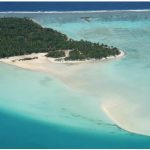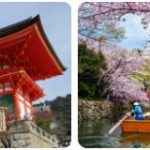Taiwan: Various travel information
Visit Countryaah for a full list of Taiwan embassies and consulates in each country around the world.
Representations of Taiwan in Germany
Taiwan’s representation in Germany is located on Markgrafenstrasse in the Berlin-Mitte district
Representation of Taiwan
Markgrafenstrasse 35
10117 Berlin
Tel.: 0049 – (0) 30 – 20 36 10
German representations in Taiwan
The Federal Republic of Germany does not recognize Taiwan diplomatically, so there are no representations there in the rank of embassies.
German Institute
4th Floor, No. 2, Minsheng East Road, Sec. 3
Taipei 104
Tel: 00886 – 2 – 25 01 61 88
Email: info@taip.diplo.de
Web: www.taipei.diplo.de
Austrian representations in Taiwan
Austria does not recognize Taiwan diplomatically, so there are no representations there in the rank of embassies.
Austria office
10F., No. 167 Dunghua Road, Songshan district
105 Taipei
Tel: 00886 – 2 2712 8597-9
Email: taipeh-ot@bmaa.gv.at
Web: www.aussenministerium.at/taipeh
Representations of Taiwan in Austria
Taiwan does not have a diplomatic mission in Austria.
Swiss representations in Taiwan
Switzerland has no representation in Taiwan. The responsible embassy is in China
Representations of Taiwan in Switzerland
Taiwan does not have a diplomatic representation in Switzerland.
Tourist office
Tourism Bureau
9F., No.290, Sec. 4, Zhongxiao E. Rd., Da-an District
Taipei City 10694, Taiwan (ROC)
Tel: 00886 – 2 – 23 49 15 00
Web: http://eng.taiwan.net.tw
Representations of Taiwan in
Germanylad Taipei Tourism Office
Ministry of Transportation and Communications
Taiwan – ROC
Rheinstrasse 29
60325 Frankfurt
Tel: 0049 – (0) 69 – 61 07 43
Fax: 0049 – (0) 69 – 62 45 18
Email: info @ taiwantourismus. de
Web: www.taiwantourismus.de
Entry and exit regulations
Formalities, visas
For German citizens, a passport that is valid for at least six months is required to enter Taiwan. German child ID cards must have a photo. The entry of the child on a parent’s passport is accepted. German nationals do not need a visa for visits of up to 30 days. An extension of the length of stay is excluded. For stays of more than 30 days, a visa is required.
Issuing of visas in Germany
Markgrafenstraße 35
10117 Berlin
Tel.: +49 – (0) 30 – 203610
Foreign exchange, goods
Local currency
The national currency of Taiwan is the New Taiwan Dollar = 100 cents.
There is no limit to the import of foreign currency, amounts equivalent to more than 10,000 US dollars must be declared upon entry. The import of local currency is only permitted up to an amount of TWD 60,000 without the prior written consent of the Taiwanese Central Bank.
Goods The
following goods may be imported into Taiwan duty-free:
- 200 cigarettes or 25 cigars or ½ kg of tobacco
- 1 liter of alcohol
- Goods for personal use up to the equivalent of NT $ 60,000 for adults and NTD 30,000 for those under the age of 20
- Gold may only be imported duty-free up to an amount of 62.5 grams, silver only up to an amount of 625 grams
- Medicines may be introduced up to two boxes/bottles per medicine
It is prohibited to import counterfeit money, drugs, pornographic material, communist writings, weapons, ammunition and endangered animal and plant species without an import permit, as well as the import of goods that violate copyright regulations.
When you leave the country you need a customs form in which the items are listed for foreign currency, technical equipment, gold and silver.
Cheap goods, souvenirs
Popular souvenirs from Taiwan are clothing, jade jewelry, embroidery, porcelain as well as spirits and food.
Departure fee
There is a fee of 300 New Taiwan Dollars when leaving Taiwan. When leaving the country by air, the fee is usually already included in the ticket price.
Travel medicine, vaccinations and warnings
Infectious Diseases
The following infectious diseases can be expected in Taiwan:
- Malaria, there is no risk of malaria in the country.
- AIDS, HIV, there is a low risk of infection if you have unprotected sex or if you come into contact with infected blood, e.g. during blood transfusions
- Bacterial agitation – only when consuming contaminated food or drinks
- Lyme disease – from tick bites
- Chikungunya
- Cholera – an infection risk exists only for travelers who come into contact with polluted water or contaminated food. can
- Dengue fever – especially on the coast in the south of the country
- Intestinal infections from contaminated food or water, including amoeba, lamblia, salmonella, shigella, worm infestation and all kinds of viruses and bacteria
- Typhus – especially in the bushland in the south of the country
- Early summer meningo encephalitis, mainly as a result of tick bites
- Hepatitis A and B An infection with hepatitis B is only possible in people who can come into contact with blood or those who seek sexual contact.
- Japan encephalitis – Risk months May to October, occurrence particularly in the eastern and central provinces
Recommended vaccinations
when traveling to Taiwan, the following vaccinations are recommended.
- Cholera – but only among travelers who can come into contact with polluted water or contaminated food.
- Diphtheria – a vaccination against diphtheria should always exist, also in the home country.
- Hepatitis A and B
- Japan encephalitis
- Meningococcal meningitis
- Tetanus – a vaccination against tetanus should always exist, also in the home country.
- Typhoid – but only for travelers who can come into contact with polluted water or contaminated food.
Compulsory vaccination
For all persons older than one year and arriving from a yellow fever infection area designated by the WHO, there is a compulsory vaccination against a yellow fever disease.
- Yellow fever vaccination for childrenIn most of the countries where a yellow fever vaccination is compulsory, this also applies to all children over 1 year of age, in some countries even from 6 months. It should be noted that vaccination against yellow fever had a number of side effects, such as encephalitis. Around two thirds of those affected were children under 6 months. Therefore, under no circumstances should children under this age be vaccinated. But children under one year of age should also not be vaccinated if possible. If in doubt, yellow fever infection areas must then be avoided.Any vaccination against yellow fever may only be carried out in specially authorized yellow fever vaccination centers!
Who pays for vaccinations in Germany?
Most children in Germany are vaccinated against a number of infectious diseases at an early age. However, the vaccination protection only lasts up to 10 years, in some cases even shorter. Therefore, before traveling abroad, you should carefully consider against which infectious diseases a vaccination is necessary or useful in the country concerned and whether the vaccination protection, if applicable, was not too long ago.
Most statutory health insurances have been reimbursing the costs for the following vaccinations since June 2007.
There is even no 10 € practice fee – but the insured usually have to pay the statutory co-payment, which is 10% of the vaccine price – that is at least 5 € and a maximum of 10 €. Under these conditions, the following vaccinations are free of charge:
- cholera
- diphtheria
- Early summer meningoencephalitis (TBE)
- Yellow fever
- Hepatitis A and B
- Meningococcal meningitis
- Pneumococci
- Polyo (polio)
- Tetanus (tetanus)
- rabies
- typhus
Some health insurance companies also reimburse the cost of malaria prophylaxis.
As a rule, private health insurance companies (inquire beforehand) also cover the costs mentioned.
Warning notices
Foreign Office of the Federal Republic of Germany
Citizen Service
Telephone: 0049 – (0) 30 – 5000 – 2000
www.auswaertiges-amt.de/de
Hiking and mountain hiking in Taiwan
General information
In addition to its bustling cities, its popular coastal areas and beaches, Taiwan has a lot more to offer: namely largely untouched nature. With its nine national parks, protected areas make up 20% of the island’s area.
In addition, there is a further 30% commercial forests and other forest areas. More than 100 mountains are over 3,000 m high. All of this makes Taiwan a hiking destination unparalleled in East Asia.
Hiking routes with different degrees of difficulty, lengths and focal points are distributed over the entire island.
For the more difficult mountain hiking areas you need so-called “Mountain Passes”, either from the Alpinists’ Association of the Republic of China (type A: extremely restricted access) or from the corresponding local police stations (type B: normal access restricted).
These are primarily important for the authorities so that they always know who is where in an emergency. In general, in Taiwan, as a hiker, you should always check the weather and earthquake reports before you hike.
It is not uncommon for an increased danger level to be proclaimed at short notice or for individual sections to be completely closed due to landslides. And yet:
Taiwan is always worthwhile for those hiking vacationers who just want to see and experience something completely different. But the unique mixture of a friendly welcoming culture, breathtaking nature as well as cultural and culinary highlights in abundance invites z. B. also encourage enthusiastic photographers to become active here.
After the trip, the fantastic impressions can e.g. B. be recorded in a blog. It is also a good idea to create a photo calendar. B. can be designed here according to your own ideas. Many of the easy half-day to full-day hiking trails lead through national park sections or regional protected areas.
Special hiking routes
Worth mentioning here are: B. the hiking routes through the Yangmingshan National Park, which begins in the hills behind the capital Taipei, and is therefore easily accessible by public transport.
The highlights of these trails include the hot springs and steaming fumaroles, the unique butterfly corridor and a bird watching trail.
Another national park that offers a variety of easier hiking routes is Taroko National Park. Taiwan’s most spectacular natural landscape is characterized by deep canyons, mountain peaks of up to 3,700 m and the strong presence of the Atayal culture, Taiwan’s largest indigenous tribe, who are at home in and around the park. To the west of the Taroko National Park is the Hehuanshan area. There are hiking routes of various lengths, all above the tree line at an altitude of around 3,000 m. They all lead through a green hilly landscape with many viewpoints.
A special bonus is the pleasant climate, which makes Hehuanshan a welcome cooling off, especially in the hot and humid summer.
Tours of several days, some of which are very demanding, can be made around the Yushan east of Alishan in the center of the island. While the latter is Taiwan’s highest peak, it is more likely to be visited for the beautiful views, hot springs, and world-famous tea on offer.
The Yushan massif comprises five peaks and is home to many animal and plant species that can only be found here. One of the possible tours takes the visitor over all the peaks of the massif within five days.
Another tour follows an infamous transport route from the Japanese colonial era, the Batongguan Pass Road, which offers a variety of impressive views and photo opportunities.








